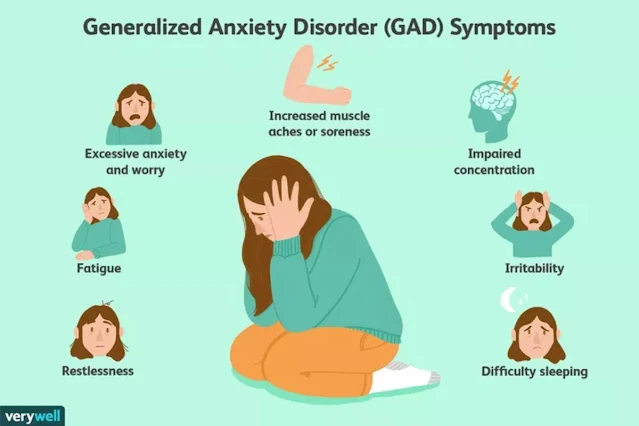[ MID-ARTICLE AD PLACEHOLDER ]
Breaking the Silence Around Everyday Anxiety
In today’s fast-moving world, anxiety has become more than just a temporary phase—it’s a silent battle many face daily. But recognising its signs early and learning how to manage them can make a powerful difference in how we feel, act, and grow. This blog is your real-time guide to understanding anxiety symptoms and practical ways to handle them with confidence.
What Is Anxiety and Why It Matters?
Anxiety is a normal reaction to stress. However, it becomes a mental health issue when it problems with your career, relationships, or sense of self-worth and becomes intense, persistent, or unreasonable. Anxiety can sometimes be softly expressed by overthinking, weakness, or even stomach pain. You can take control before things get out of hand by identifying these noises early.
Common Symptoms of Anxiety (You May Be Missing)
The following are some frequently disregarded signs of anxiety that could be interfering with your life:
- Persistent agitation or a sense of being "on edge"
- Breathlessness or a fast heartbeat
- Restless thoughts or compulsive overanalyzing
- Having trouble getting to sleep or remaining asleep
- Upset stomach or digestive problems
- Avoiding people or situations because you're afraid
It's not "just stress" if you experience multiple of these symptoms on a regular basis; you need to get help for your mental health.
How to Manage Anxiety Effectively
Consistency and selecting tools that fit your lifestyle are crucial. This is what genuinely works:
1. Take Care to Breathe Mindfully
Try using the 4-7-8 breathing method. Take a 4-second breath, hold it for 7, and then release it for 8. This helps your body shift from "fight or flight" state and relax your nervous system.
2. Create a Morning Routine Without Technology
Don't reach for your phone right away to start your day. Digital detoxification, even for just 15 minutes in the morning, can improve mental clarity and lessen anxiety surges.
3. Use an Anxiety Journal Supported by Science
Writing down your ideas helps you feel less overwhelmed. We suggest the
Smart Therapy Daily Journal, a professional-designed guided tool for monitoring and controlling anxiety patterns.
Get yours right away to begin feeling more in charge.
4. Take Natural Supplements to Promote Calm
Ashwagandha Calm Gummies have demonstrated encouraging outcomes in regulating cortisol (the stress hormone) levels, if you're open to natural alternatives.
To experience plant-based, safe tranquility, tap here.
5. Gently Move Your Body
You don't have to work out hard. A quick 10-minute stretch or stroll while listening to relaxing music can greatly improve your mood and relieve pent-up tension.
Internal Resources You’ll Love
These resources are crafted to fit your real-life routine and bring quick, meaningful relief.
CTA: Ready to Take Control?
Don't let anxiety take over your life. Get started right now with your own supplement support and guided calm notebook.
To start your own path to peace of mind,
click here.
FAQs: Your Questions, Answered
Q1: Is anxiety considered a mental illness?
Yes, it can be identified as generalized anxiety disorder or other comparable conditions when it becomes chronic and interferes with day-to-day functioning.
Q2: Is there a cure for anxiety?
Anxiety can be effectively controlled, and for many people, it becomes almost invisible. Progress, not perfection, is the aim.
Q3: If self-help fails, should I consult a doctor?
Of course. Mental health providers can offer counseling, medication, or both if symptoms intensify or continue.
🌿A Gentle Reset for Your Mind
Ignoring anxiety is not the same as learning to control it. It entails paying attention to what your body and mind are telling you and responding purposefully. Every little step you take, whether it is through breathing, journaling, activity, or support, helps you regain faith in your inner serenity.
📌Because Peace is Your Birthright
Anxiety is not a sign of weakness. You are a human. And even in times of uncertainty, you can thrive if you have the correct resources, encouragement, and baby steps. Today, take the first one.









Comments
Post a Comment
If you have any doubts, Please let me know